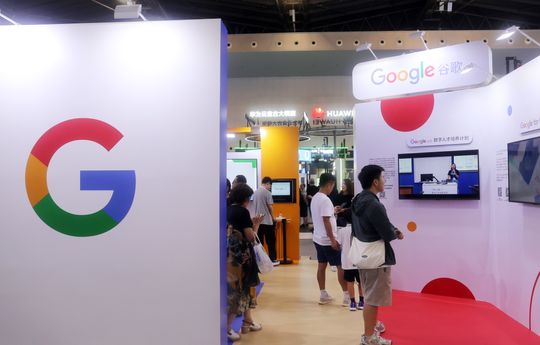
A stock-market selloff intensified Wednesday, wiping out hundreds of billions of dollars in value from the Magnificent Seven group of tech giants and pushing the Nasdaq Composite to its first decline of 3% or more in 400 trading days.
After a frenzy over artificial intelligence sent stocks to new heights in the first half of the year, investors have suddenly grown more skeptical of its potential payoffs. Traders trained those newfound doubts Wednesday on Tesla, where a delayed robotaxi rollout helped shares slide 12% in a move that reverberated across the technology sector.
The thrashing left the S&P 500 2.3% lower, its worst day since December 2022, while the Dow Jones Industrial Average lost 1.2%, or 504 points. The tech-heavy Nasdaq’s 3.6% decline was its largest skid since October 2022, when Federal Reserve officials were cranking up interest rates to tamp down inflation.
Stocks had climbed to records since then on the back of AI optimism. Then a cool inflation report this month convinced many traders that rate cuts are around the corner, sparking a shift of money to other sectors in what could be a stock-market rotation of historic proportions.
Disappointing earnings reports by Tesla and Alphabet provided the spark for Wednesday’s fireworks, which pushed each member of the Magnificent Seven into the red. The stocks collectively lost $768 billion in market value, according to Dow Jones Market Data, the biggest such wipeout on record since Meta Platforms went public as Facebook in 2012.
The market’s reaction Wednesday to the Google owner’s earnings, which slightly outpaced estimates but sparked AI-spending concerns, showcased the sky-high bar for the group as investors await results from Nvidia, Microsoft and others.
“You can’t just meet estimates. You have to beat estimates,” said David Lundgren, portfolio manager at Little Harbor Advisors. Referring to the unofficial projections shared on Wall Street, he added, “You have to beat the whisper number, frankly.”
The vibe shift on Wednesday rippled through stocks linked to the emerging AI supply chain for semiconductors and other products. Super Micro Computer dropped by 9.1%, while Broadcom fell 7.6%. Qualcomm and Advanced Micro Devices each fell by more than 6%.
The ascendance of such technology firms over the past 18 months has shielded broader indexes from other industries that have underperformed. On Wednesday, that dynamic flipped to some extent, with the S&P 500’s utilities, consumer-staples, health-care and energy sectors all finishing in the green.
Defense contractor Lockheed Martin rose 2.8%, extending its postearnings bump and notching an all-time high. AT&T logged its biggest gain of the year. Visa slipped by 4% after the credit-card company reported quarterly revenue growth that came in below analysts’ estimates.
As tech stocks have been battered in recent weeks, investors have increasingly shifted money toward small and midsize firms. The Russell 2000 index declined 2.1% Wednesday, but its 10.9% outperformance of the S&P 500 over the past 11 trading sessions is the largest such margin in more than 24 years, according to Dow Jones Market Data.
“Equity market leadership has experienced a dramatic shift in recent weeks,” John Lynch, chief investment officer of Comerica Wealth Management, wrote in a recent note.
Many analysts believe smaller firms, which tend to be more exposed to higher rates in the form of floating-rate debt, could be among the beneficiaries of rate cuts. Yields on 10-year Treasurys, a rough proxy for investors’ rate expectations, held roughly steady Wednesday at 4.285%.
In commodity markets, oil prices ticked upward by 0.8%, closing at $77.59 a barrel, after trading Tuesday at their lowest level since early June. Copper futures, which jumped in price earlier this year due to projections of an AI-driven data-center boom, retreated for an eighth consecutive day.
Investors evaluating whether the stock-market rotation has legs will parse earnings Thursday, from companies including Northrop Grumman, Honeywell International and Norfolk Southern. Colgate-Palmolive, Bristol Myers Squibb and 3M are among those due Friday.
For now, many traders expect more turbulence ahead. The CBOE Market Volatility Index, known as Wall Street’s fear gauge, rose Wednesday at its steepest rate since 2022.
José Torres, senior economist at Interactive Brokers, told clients that factors are lining up for a potentially violent correction to stocks to continue. “Risk-off sentiments are indeed dominating Wall Street,” he said.


